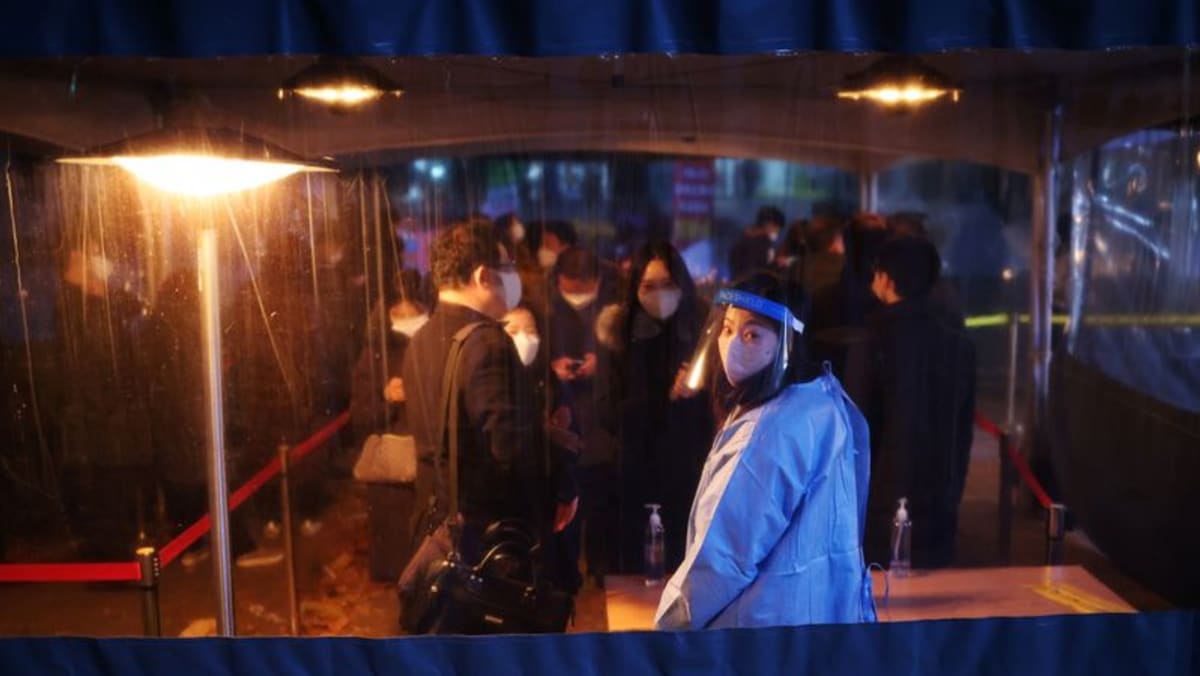
WHO's emergencies director, Mike Ryan, said there was no evidence to support a change in vaccines to tailor them to Omicron.
"Right now, we have highly effective vaccines that are working. We need to focus on getting them more equitably distributed. We need to focus on getting people most at risk vaccinated," Ryan said at a social media event.
WHO spokesman Christian Lindmeier told a United Nations briefing in Geneva that vaccine makers should prepare for the likelihood of adjusting their products.
Ugur Sahin, CEO of Germany's BioNTech, which makes a COVID vaccine with Pfizer, told the Reuters Next conference the company should be able to adapt the shots relatively quickly.
Sahin also said current vaccines should continue to provide protection against severe disease, despite mutations.
"I believe in principle at a certain timepoint we will need a new vaccine against this new variant. The question is how urgent it needs to be available," Sahin said.
WORRYING GAPS IN VACCINATION
Australia became the latest country to report community transmission of the new variant, a day after it was found in five US states.
Almost 264 million people have been reported to be infected by the coronavirus since it was first detected in central China in late 2019 and 5.48 million people have died, according to a Reuters tally.
Vaccination rates vary from country to country but there are worrying gaps in poorer countries. Indonesia, the world's fourth most populous country and once Asia's COVID-19 epicentre, has fully inoculated only about 35per cent of its population.
In the United States, the Biden administration announced measures to guard against the virus spreading. From Monday, international air travellers arriving in the United States will have to have obtained a negative COVID-19 test within a day of travel.
"We're going to fight this variant with science and speed, not chaos and confusion," President Joe Biden said.
Fewer than 60 per cent of the US population have been fully vaccinated, one of the lowest rates among wealthy nations.
Aside from wreaking havoc in the travel industry, the clampdown has pounded financial markets and undermined major economies just as they were beginning to recover from the lockdowns triggered by Delta.
Bank of England policymaker Michael Saunders, who voted for an interest rate hike last month, said on Friday he wanted more information about Omicron before deciding how to vote this month.
"At present, given the new Omicron COVID variant has only been detected quite recently, there could be particular advantages in waiting to see more evidence on its possible effects on public health outcomes and hence on the economy," Saunders said in a speech.
Germany said it would bar the unvaccinated from all but essential businesses, and legislation to make vaccination mandatory would be drafted for early next year.
Several countries, including Britain and the United States, were bringing forward plans to offer booster shots, but, like travel bans, they are controversial.
Many scientists say the way to stop the virus spreading is to make sure poorer countries have access to vaccines, not to give blanket booster shots to people in richer countries.
https://news.google.com/__i/rss/rd/articles/CBMidmh0dHBzOi8vd3d3LmNoYW5uZWxuZXdzYXNpYS5jb20vd29ybGQvd2hvLWNoaWVmLXNjaWVudGlzdC11cmdlcy1wZW9wbGUtbm90LXBhbmljLW92ZXItb21pY3Jvbi1jb3ZpZC0xOS12YXJpYW50LTIzNTU3NTHSAQA?oc=5
2021-12-03 16:35:55Z
1194061737
Tidak ada komentar:
Posting Komentar